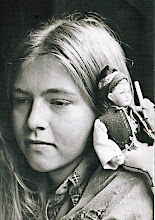The use of S.O.S. was adopted by the International Wire Congress in Berlin in 1906, but it took awhile for it to be widely adopted. In 1912, the Titanic initially sent C.Q.D. messages before interspersing them with S.O.S. signals.
Here is a card showing another Clyde Line Steamer. Apparently the Mohawk, Cherokee, and Seminole, all built in 1925-26, looked the same, so this card could be any one of them. Björn Larsson's website, Maritime Timetables Images, shows some great interior views too and reports that:
The Mohawk was sunk in 1935 following a collision with a freighter off New Jersey,
while the Cherokee, serving as a troop transport, was torpedoed and sunk in 1942.
Both the Seminole and Algonquin were hospital ships during WW2 and survived to be scrapped during the 1950s.
Here are the backs of the cards in the same order.
The second card was sent to Mrs. J.J. Burwell of Lumberton, New Jersey in 1929 from Jacksonville, Florida. The message reads:
Does this look like the vessel on which we took our trip?
John
Think Possibly I may get back by Friday eve next.






















